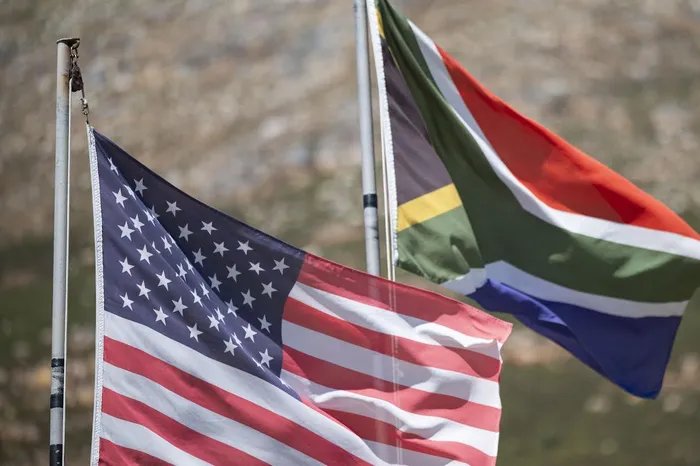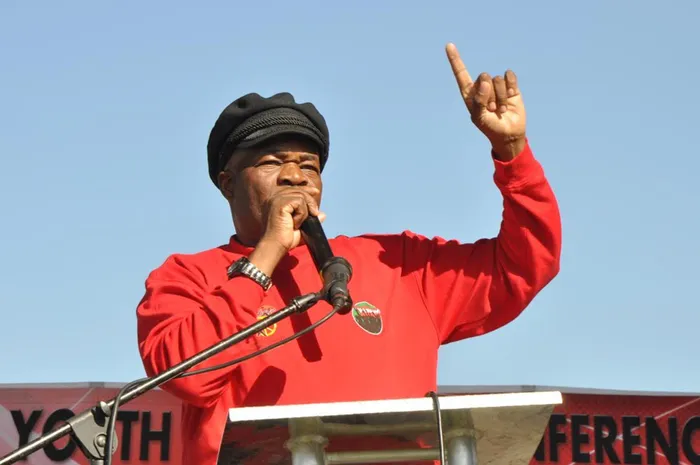
During the dark days of colonial and apartheid rule, the lives of Black communities were subjected to the most brutal forms of violence unleashed by the state, including forced removals, assassinations, torture, detention and state sponsored vigilante attacks.
Image: Armand Hough/Independent Media
Whilst a White Genocide is fake news spurred by race baiters on social media, crime is a real problem for all South Africans, in particular African and Coloured working-class communities, and especially women.
South Africa is a nation that has struggled with high levels of crime for decades. During the dark days of colonial and apartheid rule, the lives of Black communities were subjected to the most brutal forms of violence unleashed by the state, including forced removals, assassinations, torture, detention and state sponsored vigilante attacks. During this time, the role of the police was to subject not protect communities.
Much has been done since the advent of democracy by government led by the African National Congress to deracialise and transform the police into a police service focused on protecting our communities, in particular the most vulnerable. Whilst strides have been made on many fronts, including the recently announced reductions in murders, cash in transit heists and other serious crimes, we nonetheless remain a society battling this pandemic.
Whilst the cause of some types of crime, in particular petty crimes, are unemployment and poverty, others remain the domain of depraved individuals and well resourced and sophisticated criminal syndicates and gangs.
What is to be done as Lenin asked? Yes, we must spur the economy, create decent jobs and slash poverty but equally we must ensure our law enforcement have the weapons they need to win this war.
Whilst government has doubled the size of the SAPS since 1994, it has not kept pace with population growth, let alone rising crime levels or the internationally recommended ratio of police to society. We welcome the recent shift in this regard to begin recruiting new police officers.
The SAPS is our most important weapon in this war, yet we fail to continuously invest in the skills and training of our officers, to provide them with working vehicles, adequate protective gear, modern police stations or the latest forensic, communications or other equipment. Our police need to be paid a decent and living not a poverty wage if we are to ensure that none are tempted by the allure of well-resourced syndicates and gangs.
The National Prosecuting Authority too has not been spared the costs of austerity budget cuts. The NPA has struggled with a shortage of prosecutors, though we hope the recent announcement of funding for an additional 250 marks a step in the right direction. Again, if you want to attract the best, the state needs to offer attractive salaries.
The courts need to be invested in and modernised. The endless delays in trials and the archaic paper-based systems deter many from pursuing justice.
More must be done to turn our Correctional Services from resting centres for criminals who continue their violent activities inside their cells and pose a serious threat to the safety and lives of our prison staff. Inmates must be required to pursue skills development and further education to help them find work and leave the life of crime upon their release. Parole programmes must be expanded to reduce the high levels of recidivism amongst former prisoners.
Home Affairs must be roped in to help the SAPS build a comprehensive DNA and biometric database of all persons within South Africa.
The South African Revenue Service must be given the resources it needs to tackle customs fraud and in particular illicit trade in tobacco and alcohol as well as to conduct comprehensive lifestyle audits of those with unexplained wealth.
Treasury and Parliament must treat our law enforcement institutions as assets and their allocations as investments. And yes, whilst there is a cost to fund them today, we will reap the rewards in a society that is safe and an economy that attracts the investments and retains the skills needed to spur growth and create jobs.
Parliament must tighten the Criminal Procedures Act to prohibit bail under any circumstances for any person charged with attacking law enforcement personnel. Similarly, life sentences must be required for all convicted of killing our law enforcement officers and life must mean life not release after 20 years or less.
We as ordinary citizens too must play our part and adopt a zero-tolerance approach to all forms of criminality in our communities and workplaces. This includes the most basic of offences such as littering and public intoxication to domestic violence and corruption. All crimes have witnesses, and we must expose these crimes.
Witnesses and whistleblowers must be protected and the memory of those who have died exposing corruption and other criminal activities, honoured.
The private sector too must play its part, from creating jobs and paying a living wage to supporting locally produced goods and not supporting a culture of corruption in pursuit of tenders. It must work with and actively support and sponsor the SAPS and Community Policing Forums and Neighbourhood, Community and Farm Watch Programmes.
South Africa requires the support and cooperation of international partners, from Mozambique to Zimbabwe in dealing with illegal migration, car theft and drug smuggling, to Lesotho on stock theft. Similarly, the support of other nations further afield in tackling criminal syndicates and drug cartels is urgently needed, in particular Brazil, Tanzania, Nigeria and Afghanistan.
International partners in the industrialised economies need to be engaged to provide support to the SAPS particularly with regards to resources, training and live intelligence. Criminal syndicates operate across borders. Their defeat requires similar international collaboration.
We will not be able to grow our economy, create decent jobs, reduce poverty and inequality, unless we resource our law enforcement, ramp up the war against crime and treat it as the national priority it is.
This is a war that requires government, business, labour, the media, and ordinary citizens to work together.
It requires us to anchor society upon a culture of zero tolerance, morality and rule of law. We cannot afford to continue to normalise the levels of crime that have become prevalent across our communities.
Solly Phetoe is the General Secretary of Cosatu.

Solly Phetoe.
Image: File
BUSINESS REPORT
Visit: www.businessreport.co.za